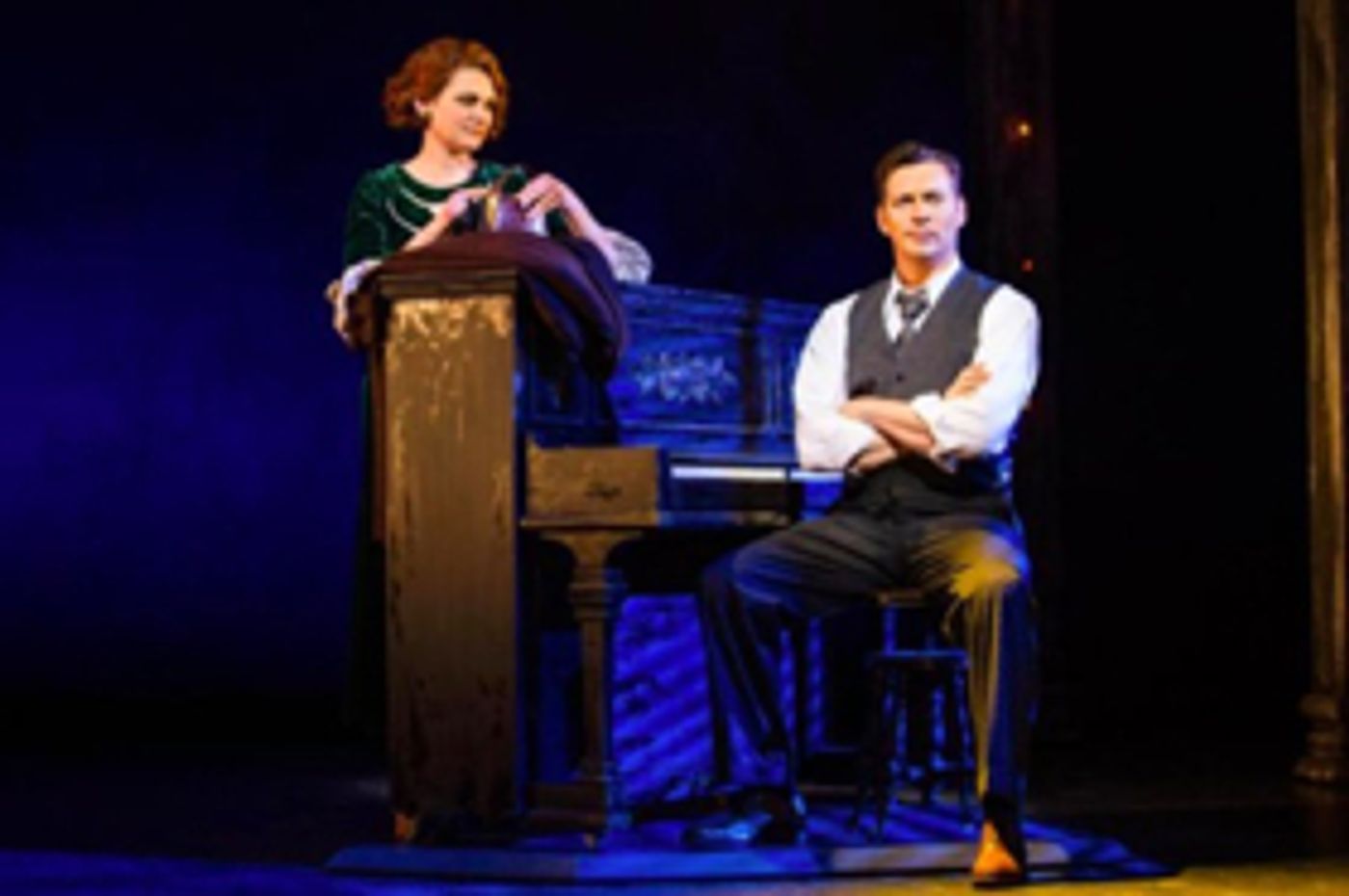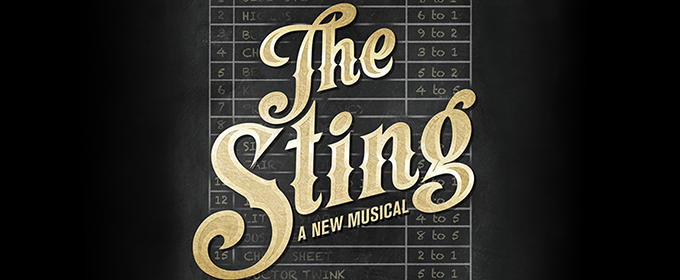Review Roundup: What Did the Critics Think of THE STING's Pre-Broadway Engagement at Paper Mill Playhouse?

Paper Mill Playhouse is diving into the world of high stakes cons with the world premiere production of the new musical The Sting, which opened its Broadway-bound engagement at Paper Mill Playhouse last night, April 8. The show will play a limited engagement through April 29.
The Sting is based on the 1973 film with book by Bob Martin, music and lyrics by Mark Hollmann & Greg Kotis with Harry Connick, Jr. The score contains music by Scott Joplin including "The Entertainer." John Rando is set to direct with choreography by Warren Carlyle and music direction by Fred Lassen.
Chicago. 1936. Get ready to enter a smoke-filled world of cons and capers, where nothing is what it seems and no one is who they appear to be. Based on the 1973 Academy Award-winning film, The Sting tells the tale of a pair of con men, small town grifter Johnny Hooker and big-time hustler Henry Gondorff (Harry Connick, Jr.), who plot to bring down the city's most corrupt racketeer. The Sting takes you back to an era where jazz reigns, the stakes are high, and the dice are always loaded.
Let's see what the critics had to say...
Alexis Soloski, NY Times: The songs are likable enough, never revelatory. You can spot the rhymes from the next town over. Thankfully there's Warren Carlyle's blissful choreography, especially the hotfoot, slip-sliding tap numbers. Often a musical will make you wait to break out the tap shoes, but here the characters are scuffling, shuffling, riffing and winging from the first scene. Nothing they say, or sing, yet compares.
Marina Kennedy, BroadwayWorld: The Sting is based on the Academy Award-winning 1973 film by the same name that starred Paul Newman and Robert Redford. The movie's fans will be delighted with the musical version that retains all the charm and intrigue of the film while adding some exciting touches. It has a book by Bob Martin and features music and lyrics by Mark Hollmann, and Greg Kotis with Harry Connick, Jr. The score also has music by Scott Joplin including the classic ragtime favorites, "The Entertainer," and "The Easy Winners."
Joe Dziemianowicz, NY Daily News: The same goes for the songs and script. The ragtime- and jazz-flavored songs by Mark Hollman and Greg Kotis, of "Urinetown" fame, are perfectly pleasant and peppy. But as is most are place-holders that don't stand out. Both Ghee and Connick each need a memorable song. In an odd twist, a diner waitress, Loretta (Janet Dacal), gets better songs than the two stars.
Matt Windman, amNew York: While the film thrives upon building tension with constant twists and turns, the musical (directed without coherence by John Rando, choreographed with flare by Warren Carlyle) awkwardly inserts unmotivated tap-dance sequences, piano solos for Connick, silly gags and tenderhearted moments, creating a stop-and-start momentum that takes the thrill out of the thriller.
Frank Scheck, Hollywood Reporter: The score by Hollmann and Kotis lacks the anarchic wit of their work in Urinetown. The music, which at times hints at jazz and ragtime, is pleasantly melodic but unmemorable, and the lyrics, such as those for "The Thill of the Con," in which the grifters exult in their crooked profession, are generic and predictable. The musical highlight is "This Ain't No Song and Dance," a lavish production number that opens the second act, but even that feels extraneous. It's only in the rollicking, percussive horse-race numbers that the music feels organic to the material.
Adam F Cohen, New Jersey On Stage: Plot-heavy but lacing with beautiful, spry story-enhancing dances by Warren Carlyle. It's unique that the dancing advances the story more than the abundant songs by Urinetown creators Mark Hollman and Greg Kotis with additional material by Connick, Jr. Carlyle uses tap within an evasive chase. An Agnes DeMille-esqe ballet propels act two. The ensemble work is graceful, athletic and engaging. And Connick Jr gets in the act also, showcasing his nimble, broad talent with happy feet, demonstrative piano playing, composition, acting, and singing. The show is the perfect confluence of Connick Jr's multiple talent.
Jim Beckerman, NorthJersey.com: Musically, a lot of cooks prepared this broth, but the excellent orchestrations (Doug Besterman) give the whole production a consistent Duke Ellington-like, Big Band flavor that is certainly more appropriate to the period - Depression-era Chicago - than the straight ragtime that served as the movie's soundtrack.
Thom Geier, The Wrap: [J. Harrison] Ghee almost manages to upstage the show's above-the-marquee star, Harry Connick Jr., as Booker's older, wiser con-artist mentor, first played by Newman in the film. Here, his wizardlike character, Gondorff, is introduced as a "piano monkey in a whorehouse" who spends more time tickling the ivories as he does palming cards or picking pockets. Connick is a wiz at the piano, of course, riffing on Mark Hollman's deliberately Joplin-esque score on stage, and he also proves to be surprisingly nimble on his feet during dance numbers like the Act 2 curtain-raiser "This Ain't No Song and Dance." (He's also credited with additional music and lyrics.)
Lee Pfeiffer, Cinema Retro: The pace of the production is suitably brisk, the dialogue punctuated with wisecracks and most of the musical numbers enable the advancement of the story line. The score by Mark Kollman and Greg Kotts (with contributions by Connick) is breezy and fun even if there isn't a single breakthrough number that you'll find yourself humming afterward. The dance numbers are outstanding thanks to the talents of choreographer Warren Carlyle. Connick's legions of loyal fans will be pleased that he gets to perform some solo numbers and he proves to be a very able and charismatic actor, as well. His on-stage partner in crime (Ghee) also delivers the goods with an assured and highly amusing performance. The production can still use some tweaking. The first act ends with the con men having successfully amassed their "army" of fellow charlatans, thus the audience is eager to get to the actual caper in the second act. However, there are so many musical numbers (all of them admittedly impressive) that it distracts from the sense of anticipation to see the elaborate "sting" enacted.
Suzanna Bowling, Times Square Chronicle: The costumes by Paul Tazewell along with the hair and wig design by Charles G. LaPointe are flawless. The elaborate set design by Beowulf Boritt, are enhanced by the lighting by Japhy Weideman, making this production look expensive and well thought out. Bob Martin's book slows in the second act and the female characters need to feel more like people, but Martin's witty dialogue more than makes up or the easily fixed flaws.
Check back later, as we will be updating our list as more reviews come in!
Reader Reviews
Videos


